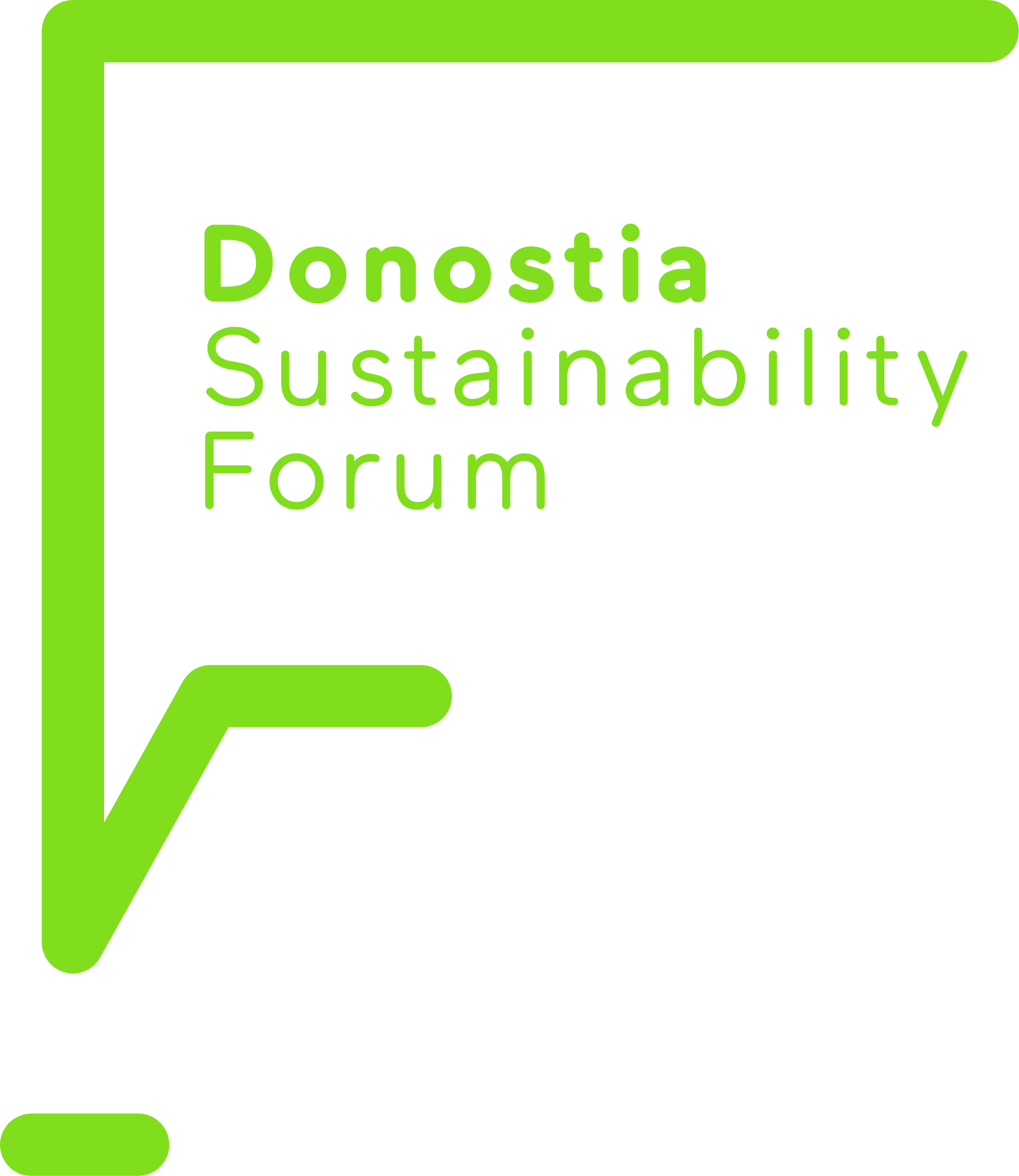The ecological value of wetlands: life and progress
The ecological value of wetlands: life and progress
World Wetlands Day has been held every 2nd February since 1971 to commemorate the Convention on Wetlands, known as the Ramsar Convention after the Iranian town that hosted it, and raise awareness of the importance of all wetlands to the life of the planet.
World Wetlands Day has been held every 2nd February since 1971 to commemorate the Convention on Wetlands, known as the Ramsar Convention after the Iranian town that hosted it, and raise awareness of the importance of all wetlands to the life of the planet."We are no longer talking about saving the planet, what we need to talk about is the human lives that are in danger because of the climate crisis"
<p> Just back from Glasgow, where she attended COP-26, the United Nations climate conference, the environmental journalist and author of the book "Ecoansias" Irene Baños closed the open days programme of the Donostia Sustainability Forum with a conference on eco-anxiety and climate action.</p>
Just back from Glasgow, where she attended COP-26, the United Nations climate conference, the environmental journalist and author of the book "Ecoansias" Irene Baños closed the open days programme of the Donostia Sustainability Forum with a conference on eco-anxiety and climate action.
Workshop on good practice in the donation of surplus food: a solidary solution that reduces food waste
<p> The Workshop on Good Practices in the Donation of Surplus Food began by highlighting the importance of prevention in order to avoid creating food surpluses, the guidelines for the donation of surplus food in the Basque Country and the need for action plans.</p>
The Workshop on Good Practices in the Donation of Surplus Food began by highlighting the importance of prevention in order to avoid creating food surpluses, the guidelines for the donation of surplus food in the Basque Country and the need for action plans.
Ideas for Summer Courses proposals for the Donostia Sustainability Forum
<p> Donostia Sustainability Forum- Basque Green Deal, is a platform for the interdisciplinary treatment of sustainability from an environmental, social and economic perspective.</p> <p> The Summer Courses are an important part of the Forum's program that runs throughout the year.</p> <p> At this time the deadline for submitting proposals for the Summer Courses is open (until November 26) and through these lines we list some topics of interest for the next edition framed in each of the sustainability challenges of the DSF-BGD.</p> <p> Come and collaborate with DSF-BGD to advance towards a more sustainable world!</p> <p> Please click to see the regulations and to submit your proposal: <a href="https://www.uik.eus/en/proposals/proposals">https://www.uik.eus/en/proposals/proposals</a></p>
Donostia Sustainability Forum- Basque Green Deal, is a platform for the interdisciplinary treatment of sustainability from an environmental, social and economic perspective.
The Summer Courses are an important part of the Forum's program that runs throughout the year.
At this time the deadline for submitting proposals for the Summer Courses is open (until November 26) and through these lines we list some topics of interest for the next edition framed in each of the sustainability challenges of the DSF-BGD.
Come and collaborate with DSF-BGD to advance towards a more sustainable world!
Please click to see the regulations and to submit your proposal: https://www.uik.eus/en/proposals/proposals
Artikutza, an element for the sustainability of San Sebastian
<p> Arturo Elosegi, Doctor in Biology and Professor of Ecology, highlights the difference between the way Artikutza used to look like 100 years ago and the way it looks today. A hundred years ago, miners, charcoal makers and shepherds used to walk through Artikutza, the river was polluted and the forest was overexploited. The situation in Artikutza has changed considerably. Today Artikutza is one of the best-preserved places in the Basque Country and, in this sense, it emphasises the commitment that San Sebastian City Council made in its day and continues to make.</p>
Arturo Elosegi, Doctor in Biology and Professor of Ecology, highlights the difference between the way Artikutza used to look like 100 years ago and the way it looks today. A hundred years ago, miners, charcoal makers and shepherds used to walk through Artikutza, the river was polluted and the forest was overexploited. The situation in Artikutza has changed considerably. Today Artikutza is one of the best-preserved places in the Basque Country and, in this sense, it emphasises the commitment that San Sebastian City Council made in its day and continues to make.
Ending food waste is not a matter of willpower
<p> To do things well, we must ensure that no one loses and that everyone sees their effort rewarded.</p>
To do things well, we must ensure that no one loses and that everyone sees their effort rewarded.
Gipuzkoa now or forever
<p> Impact of climate change in some unique areas of Gipuzkoa.</p> <p> Our environment has changed a lot since the days of our grandparents… and it has not even been that long. Society makes progress and that implies changes both in lifestyle and in the environment. Today we are more than 7.8 billion people on Earth and we live in a globalized world. The most notable consequence of this is the climate change we are experiencing.</p>
Impact of climate change in some unique areas of Gipuzkoa.
Our environment has changed a lot since the days of our grandparents… and it has not even been that long. Society makes progress and that implies changes both in lifestyle and in the environment. Today we are more than 7.8 billion people on Earth and we live in a globalized world. The most notable consequence of this is the climate change we are experiencing.
The green areas are not a lawn full of flowers
<p> Rufino Hernández, director of the European Congress on Energy Efficiency and Sustainability EESAP12-CICAS, prefers to speak of waves in the plural instead of focusing on the challenges posed by the wave of rehabilitation in which we are currently. With the money that will come from the European Next Generation, many things will be done, but then there will be an impasse and a new wave will come, because "each generation is different and wants different things." Now we set the goal of climate neutrality for cities for 2050 but as the years go by, new goals will be set, even before that date.</p>
Rufino Hernández, director of the European Congress on Energy Efficiency and Sustainability EESAP12-CICAS, prefers to speak of waves in the plural instead of focusing on the challenges posed by the wave of rehabilitation in which we are currently. With the money that will come from the European Next Generation, many things will be done, but then there will be an impasse and a new wave will come, because "each generation is different and wants different things." Now we set the goal of climate neutrality for cities for 2050 but as the years go by, new goals will be set, even before that date.
Social turning points: windows of opportunity to save the planet
<p> Caty Arévalo, a journalist specialising in environmental news, co-founder of EFEverde and winner of the BBVA foundation award for conservation of biodiversity in 2017, used the event "Windows of Opportunity to Save the Planet" to outline the concept of social turning points: changes with a big multiplier effect able to bring about large-scale transformations and make a major contribution to solving environmental problems.</p>
Caty Arévalo, a journalist specialising in environmental news, co-founder of EFEverde and winner of the BBVA foundation award for conservation of biodiversity in 2017, used the event "Windows of Opportunity to Save the Planet" to outline the concept of social turning points: changes with a big multiplier effect able to bring about large-scale transformations and make a major contribution to solving environmental problems.



